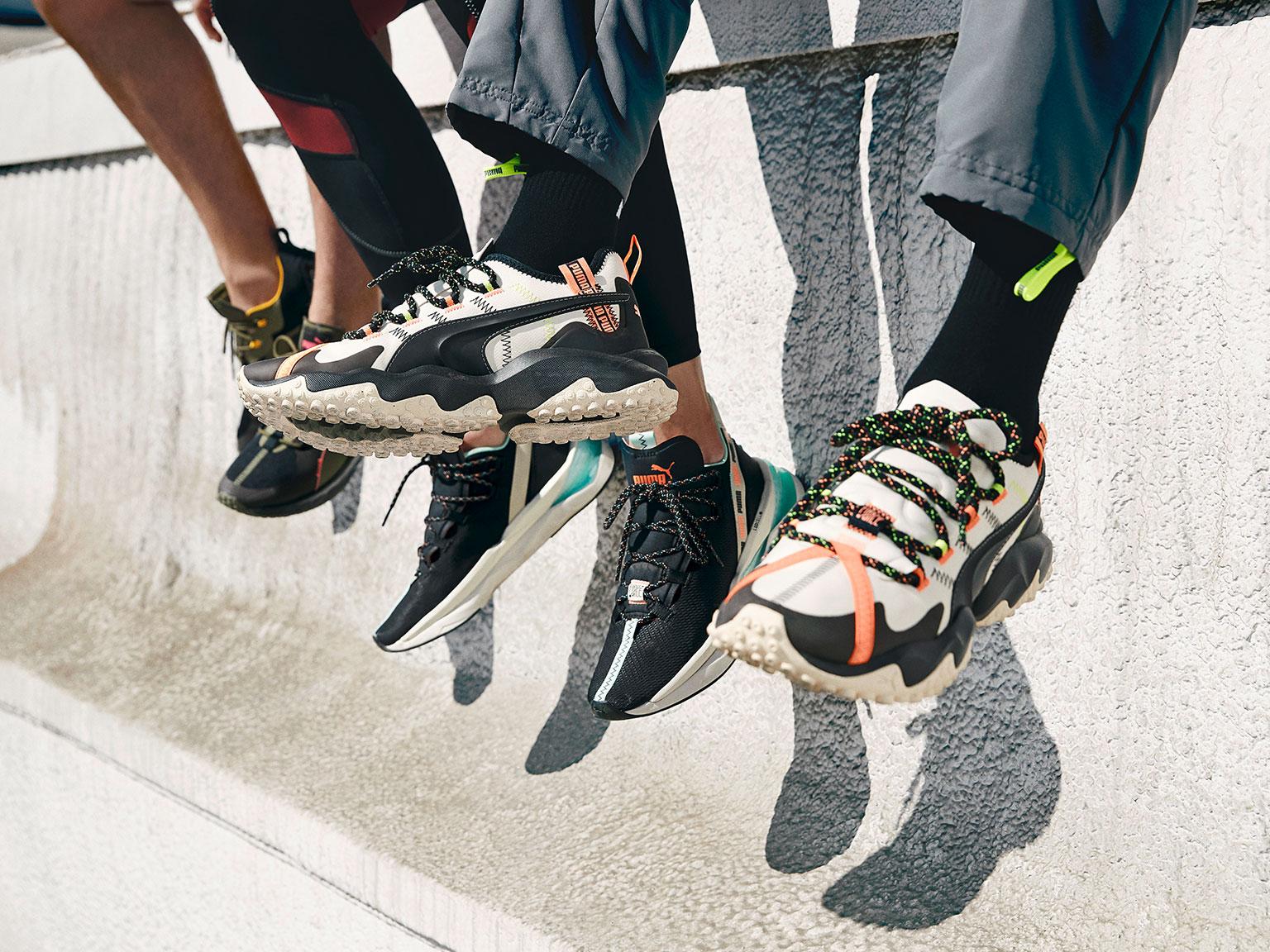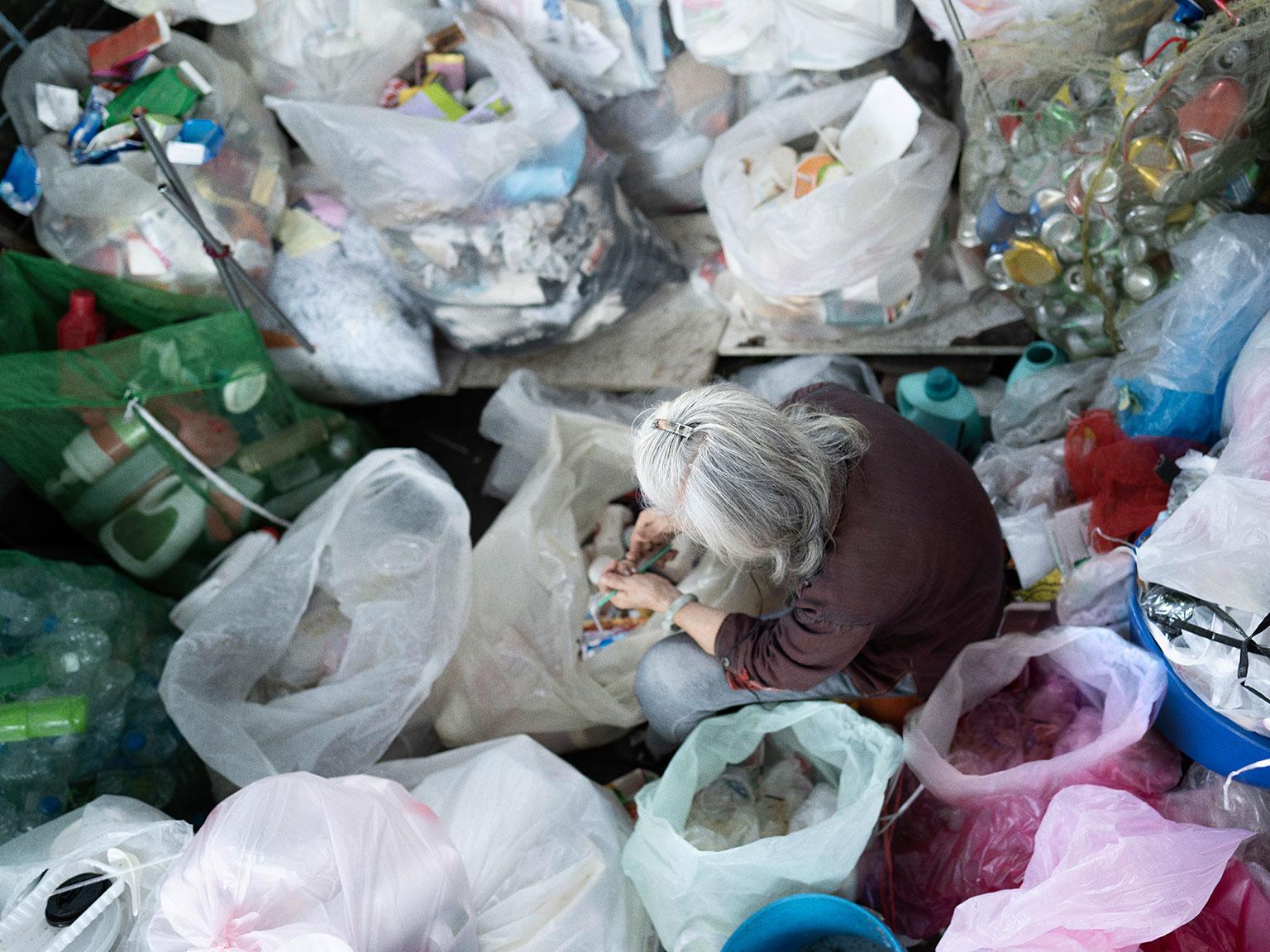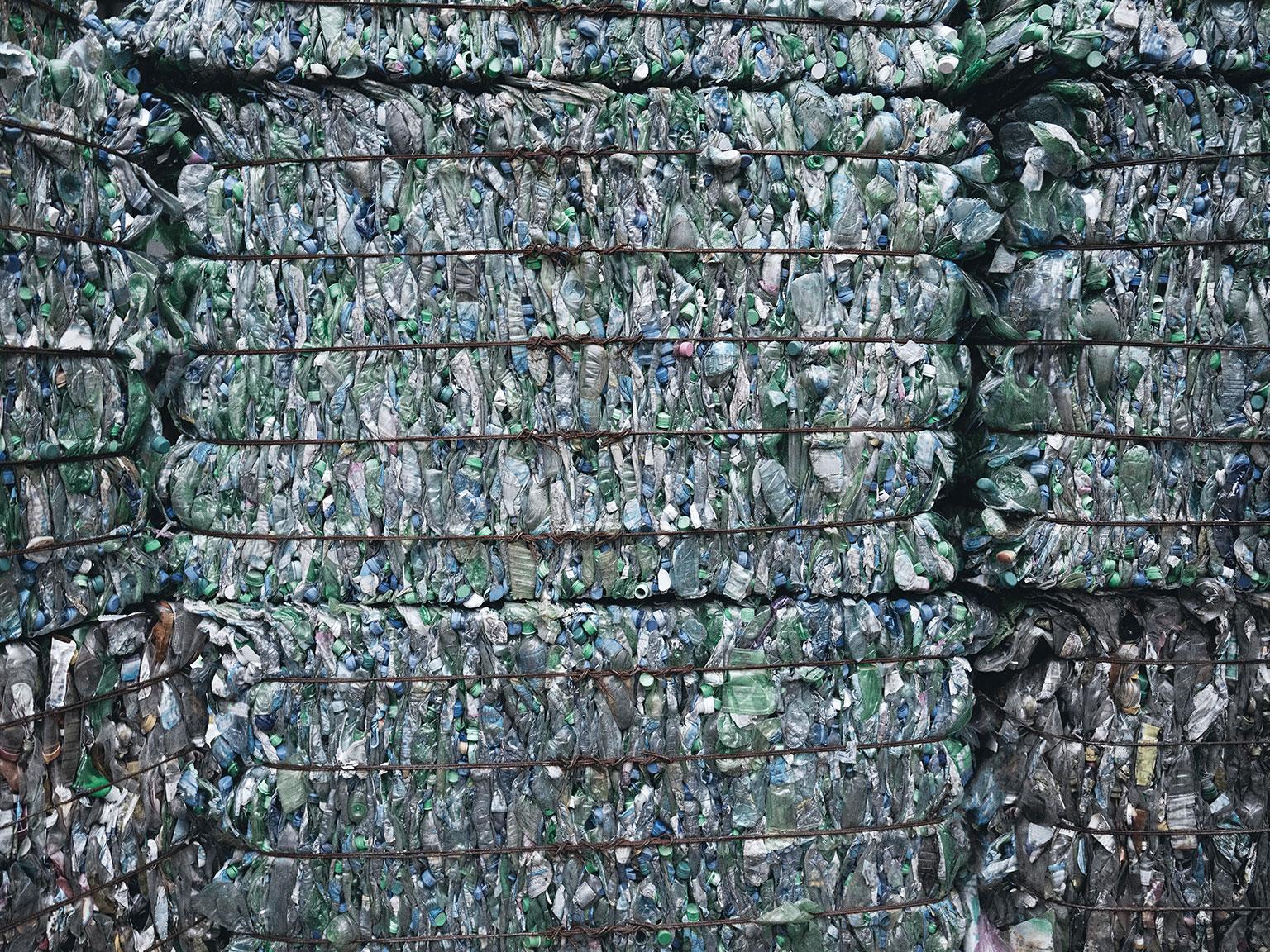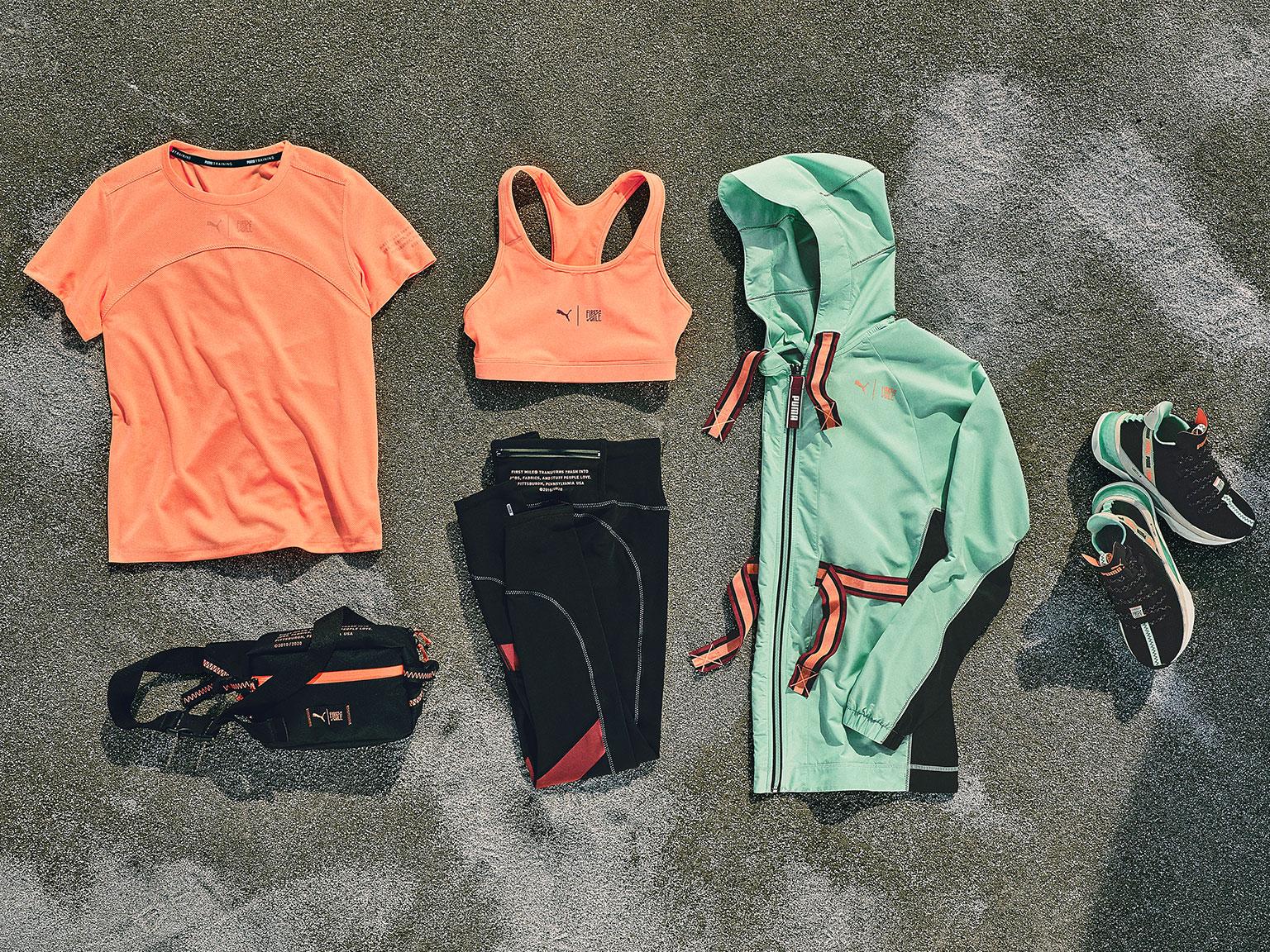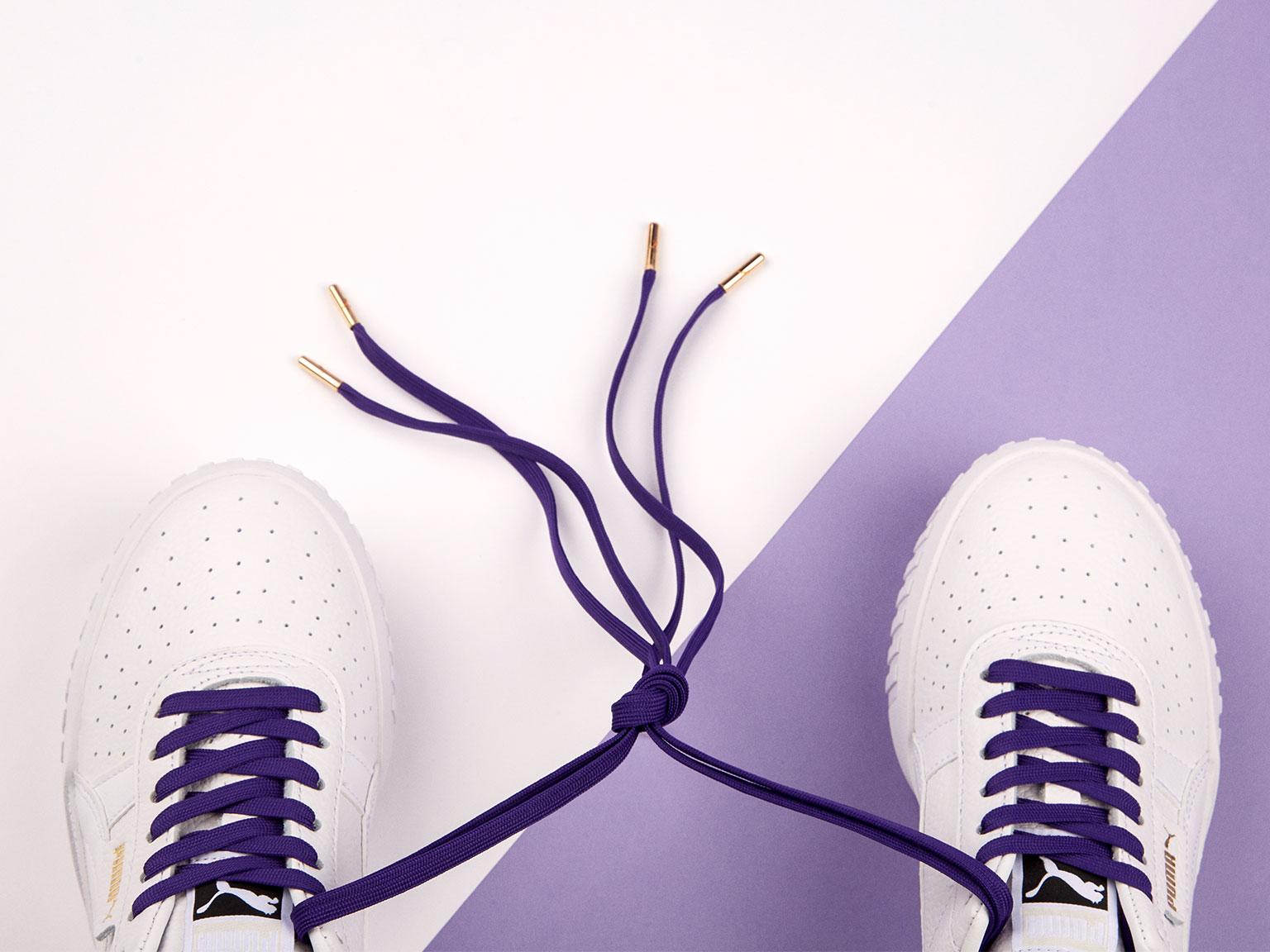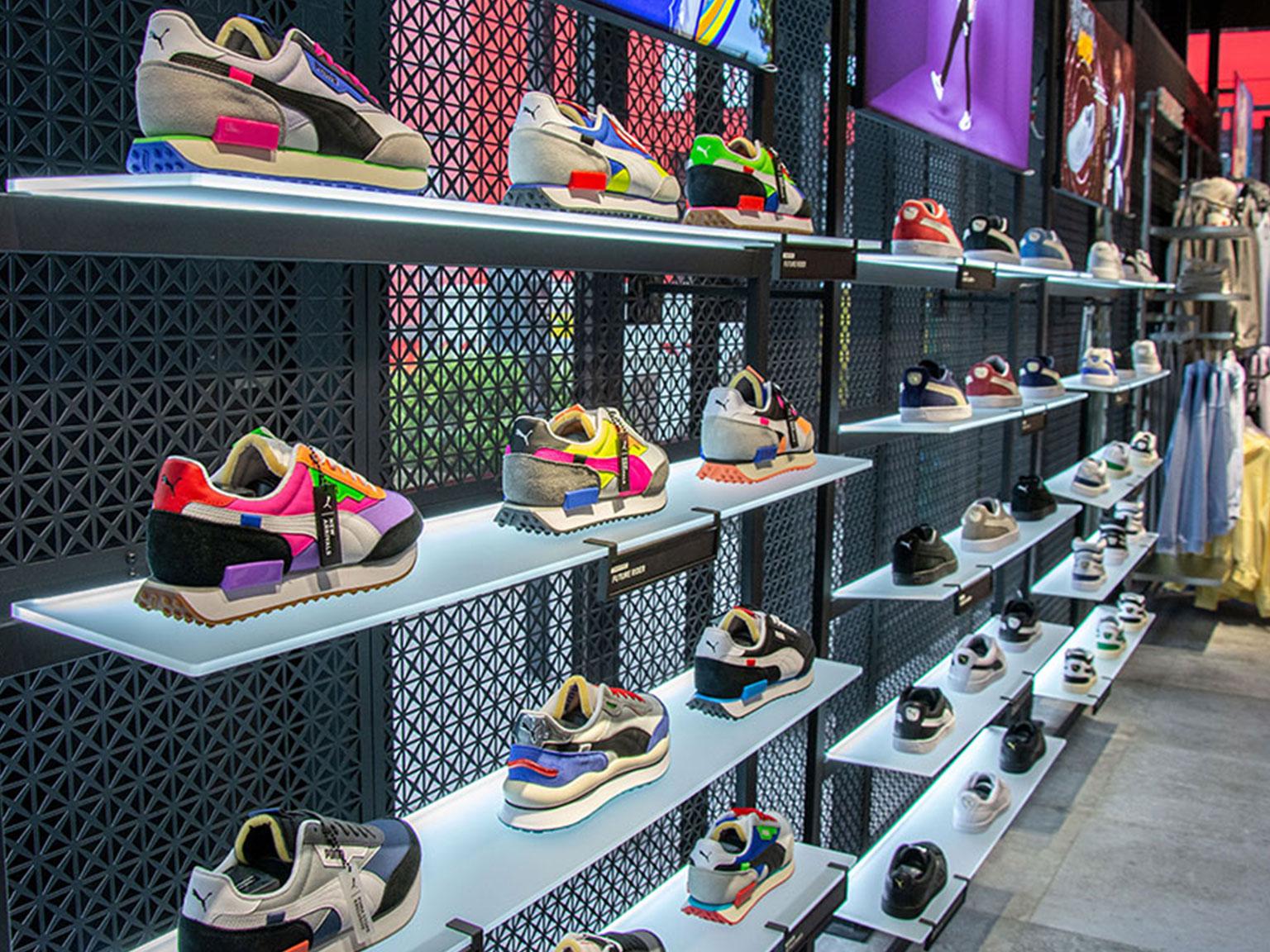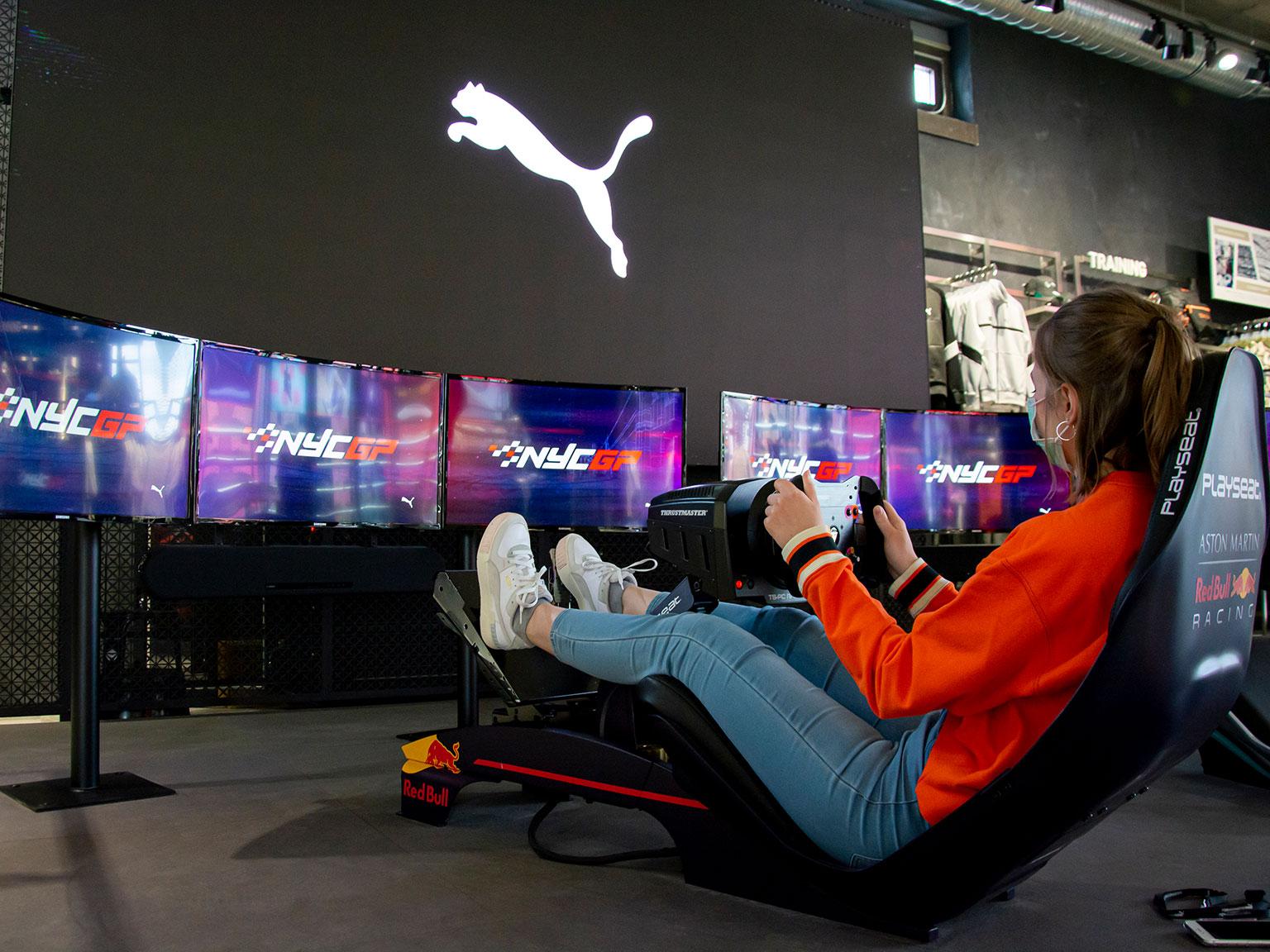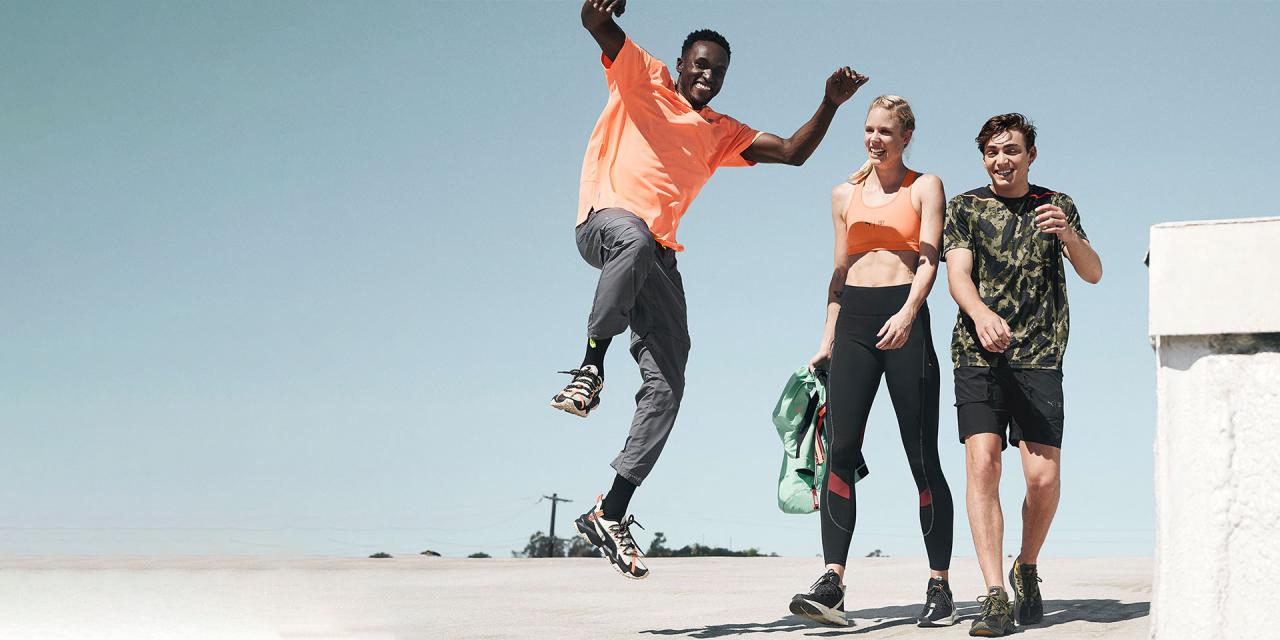

Ahead of International Women’s Day, sports company PUMA will support girls and women in sport by giving away ultraviolet laces with every footwear purchase and will make a donation of up to 100,000 euros to Women Win, an organization delivering girls’ sport programs across the globe.
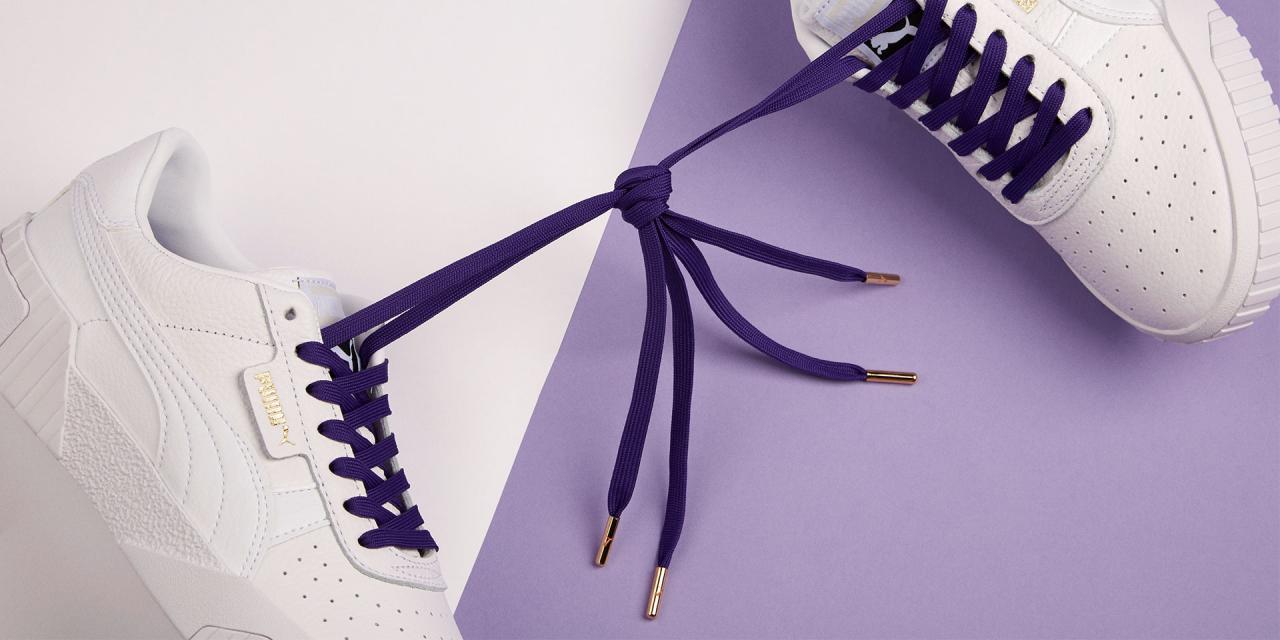
Founded in 2007, Women Win has given millions of girls and women across the world the opportunity to play sports and build leadership skills. The organization currently supports initiatives in Asia, the Pacific, Africa, Europe, and the Middle East as well as North, South and Central America.
The laces will be available at select PUMA stores and retail partners around the world, ahead of International Women’s Day on March 8.
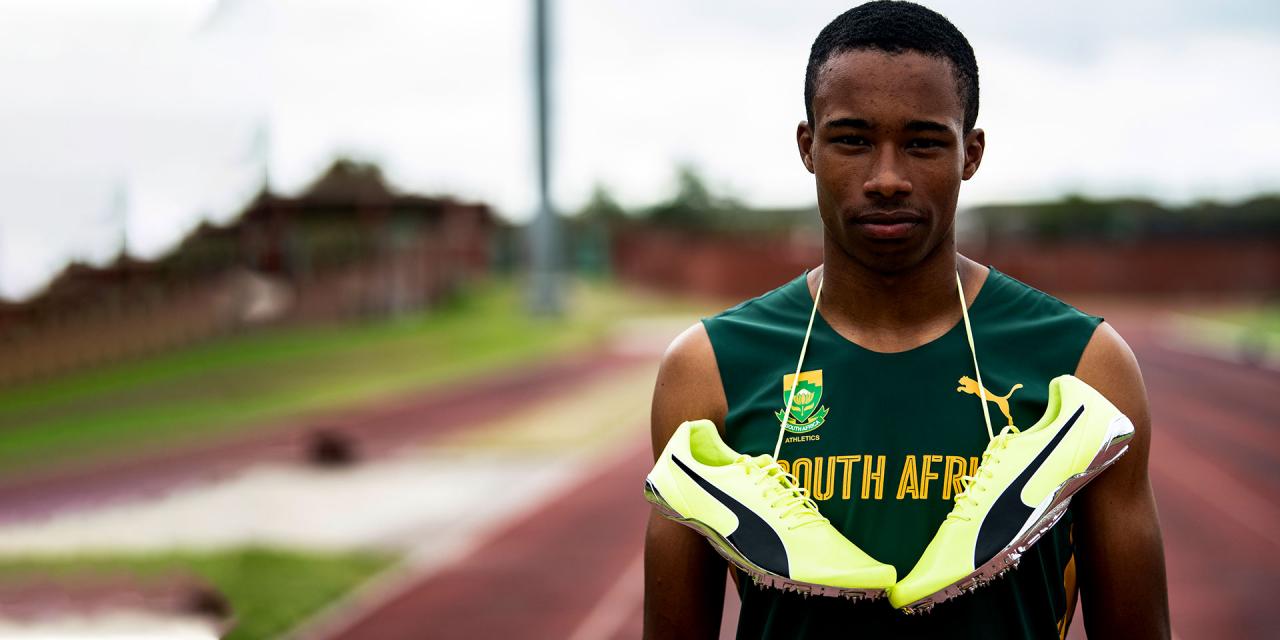
PUMA also launched the School of Speed in 2016. Headed by the World’s Fastest Man, Usain Bolt, the thrilling school athletics series aims to identify exceptional young South African Track & Field athletes.
“Track and field has always been a part of PUMA’s heritage and we are proud to be able to collaborate with the South African athletics federation, outfit one of the world’s leading teams and help to develop athletes for tomorrow’s success,” says Pascal Rolling, Head of Sports Marketing Running for PUMA.
ASA President Aleck Skhosana said: “It’s a pleasure for ASA to partner with one of the most renowned brands in the world. In particular we are excited that our new partner, PUMA, is in familiar territory in terms of sporting discipline and the athletes that they are sponsoring in South Africa. We look forward to a cordial, long-term relationship”.
PUMA continues to closely monitor the development around COVID-19. The wellbeing of our employees and partners is our highest priority in this situation. All our offices around the world are open. The office in Shanghai re-opened after the officially extended holiday period for Chinese New Year. In all our facilities, we are taking precautionary measures. We have asked all employees who are in or have been to any of the officially defined risk areas to work from home for a period of two weeks.
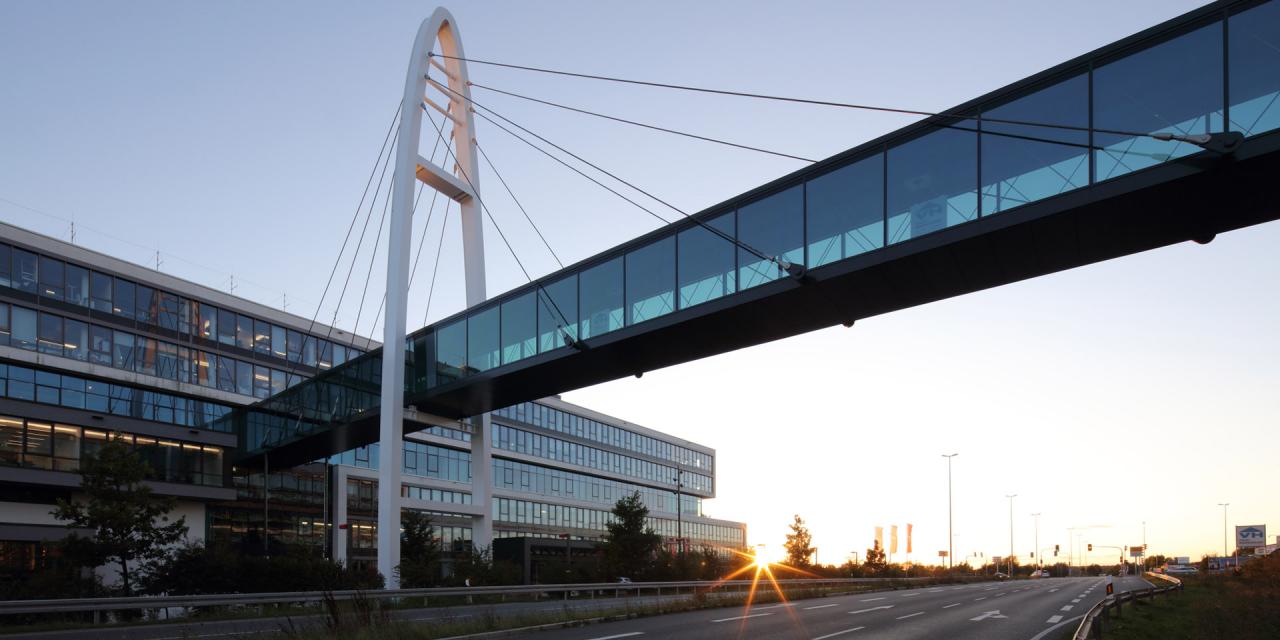
COVID-19 has also negatively impacted our business since the beginning of February both in terms of sales and sourcing .
Impact on Sourcing
China accounts for less than 20% of our international sourcing volume. Factories outside China have not been impacted. Within China, all of our Tier 1 (finished product) supplier factories are open again and are operating at 80%-100% of capacity. Almost all of our Tier 2 (material) factories are also up and running. PUMA’s outbound logistics are largely in operation with all sea ports now open and most of our transportation on land - from the factories to the sea ports - functioning normally again. Therefore, our global supply chain is currently not at risk apart from minor delays.
Impact on Sales
In China, where most of both owned and operated as well as partner stores were temporarily closed in February due to restrictions imposed by local authorities, sales have been severely affected. There are now early signs of improvement. Most of our stores in China and those of our partners are now open again. Traffic that had initially been extremely low picked up over the weekend. Other Asian markets such as Singapore, Malaysia, Japan and South Korea, which typically benefit from Chinese tourists, continue to see heavy negative effects on sales. Additionally, the virus is spreading into other parts of the world. Despite the spread of COVID-19 in Europe, almost all our stores there are still open. Those in Northern Italy operate under reduced opening hours as enforced by the authorities. Across Europe, we register significantly lower footfall traffic.
Outlook
The outlook we gave on February 19 for the full year 2020 was based on the assumption that the situation regarding the COVID-19 virus would normalize in the short term. Given the duration of the situation in China, the negative impact in other Asian countries and now also the spread to Europe and the US, we unfortunately have to conclude that a short-term normalization will not occur.
The development over the coming weeks and months is impossible to predict and we currently cannot quantify the negative effect this could have on our full-year revenue and earnings
We will of course manage this situation as best we can short-term, but at the same time continue to work on strengthening our brand, so we can continue our momentum with good growth in both revenue and earnings when the situation normalizes.
Sports company PUMA has taken immediate measures to ease the impact of the current challenging business environment, as all of its own stores in almost every part of the world, as well as the stores of its wholesale partners, have been closed by authorities.
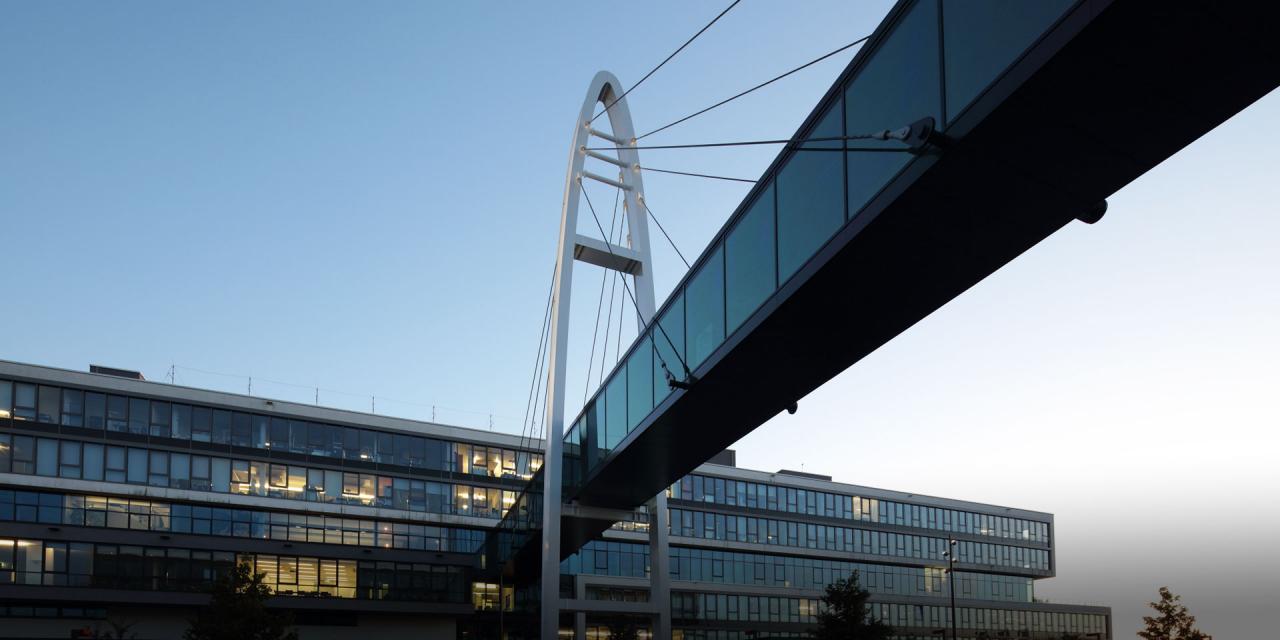
In the light of this drastic sales shortfall, PUMA’s board members (CEO, CFO and CSO) have decided to reduce their April salaries by 100%, while Senior Managers (such as General Managers and Directors) will have their April salaries reduced by 25 %.
All other PUMA employees in Germany will be working short time from March 24 to April 13. For employees in our offices, this means they will be working 50% of their contractually agreed working hours. As all PUMA stores in Germany are closed, our store employees are on 100% short time working, not working at all. However, all will receive 100% of their previous net salary, which consists of short-time pay by the Bundesagentur für Arbeit and a voluntary contribution by PUMA to top up the rest until April 13, 2020.
Given the strong negative impact of the current Sars-CoV-2 crisis on our business, the Management Board of PUMA SE has decided to propose to the Annual General Meeting the suspension of the dividend payment for the financial year 2019. a
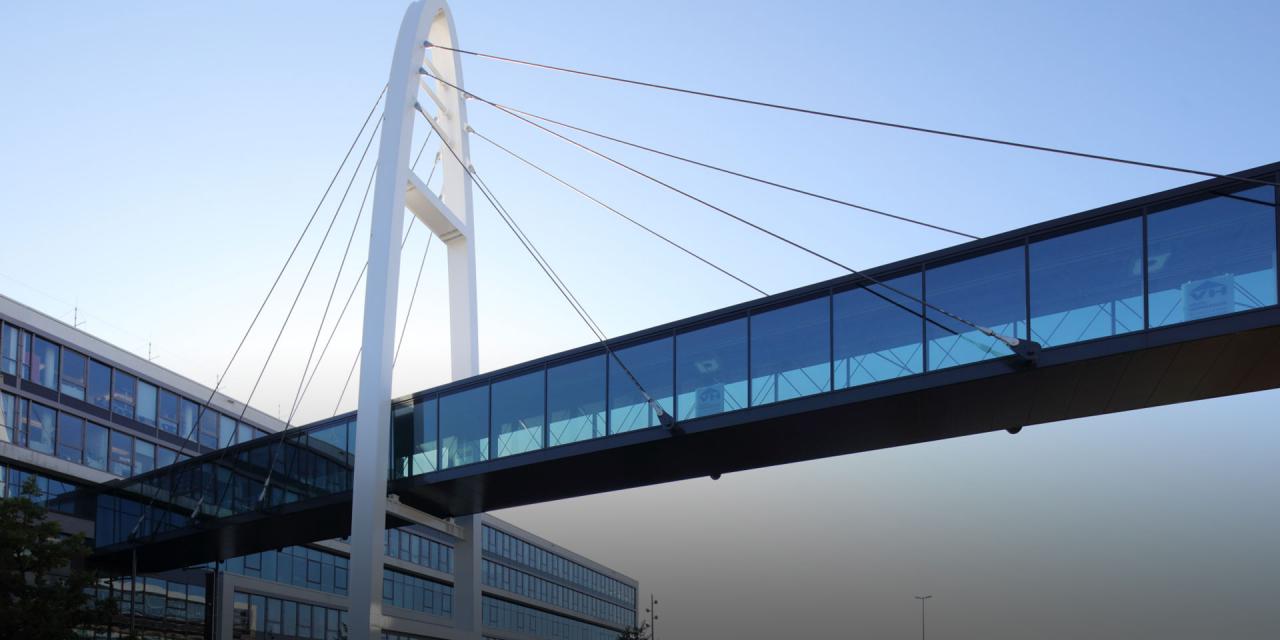
Apart from China, Japan and South Korea, almost all of PUMA’s own stores as well as those of PUMA’s partners have been temporarily closed by the authorities. PUMA’s e-commerce business, while still operational in almost all markets, accounts for less than 10% of the business. This has, of course, led to a major decline in net sales and cash inflow. It is currently impossible to foresee how long this situation will last. In order to get through this crisis, we are working closely with all our partners such as retailers, suppliers, landlords, banks, and authorities.
PUMA is reducing costs and cash outflow wherever possible as well as securing additional financing to ensure that together with our partners we can sustain the value chain in this period. The goal is to get through this crisis together. We now focus on managing the short-term challenges as well as possible, but without hindering the midterm momentum for the company.
Ensuring financing through this crisis is key and we believe suspending dividend payments as well as suspending the Management Board’s salary 100% and reducing that of our senior management by 25% are the right measures given the circumstances.
Due to the spread of Sars-CoV-2 in Germany and the contact bans mandated by authorities, the Management Board and the Supervisory Board of PUMA SE have decided to hold the Annual General Meeting on May 7, 2020 as a digital meeting only. The invitation for the meeting will be published by April 15, 2020 at the latest. According to the COVID-19 Mitigation Act which came into force on March 28, 2020 - in order to avoid large gatherings of people - general meetings may be held without the physical presence of shareholders or their proxies. PUMA’s Annual General Meeting on May 7, 2020 will meet all conditions required by the new law. Moreover, to ensure consistent communication in a fast-changing business environment impacted by Sars-CoV-2, PUMA has decided to move the date of the publication of the results for the first quarter of 2020 by one week from April 30, 2020 also to May 7, 2020.
Sports company PUMA has reopened its brand store next to its headquarters in Herzogenaurach after a refurbishment.
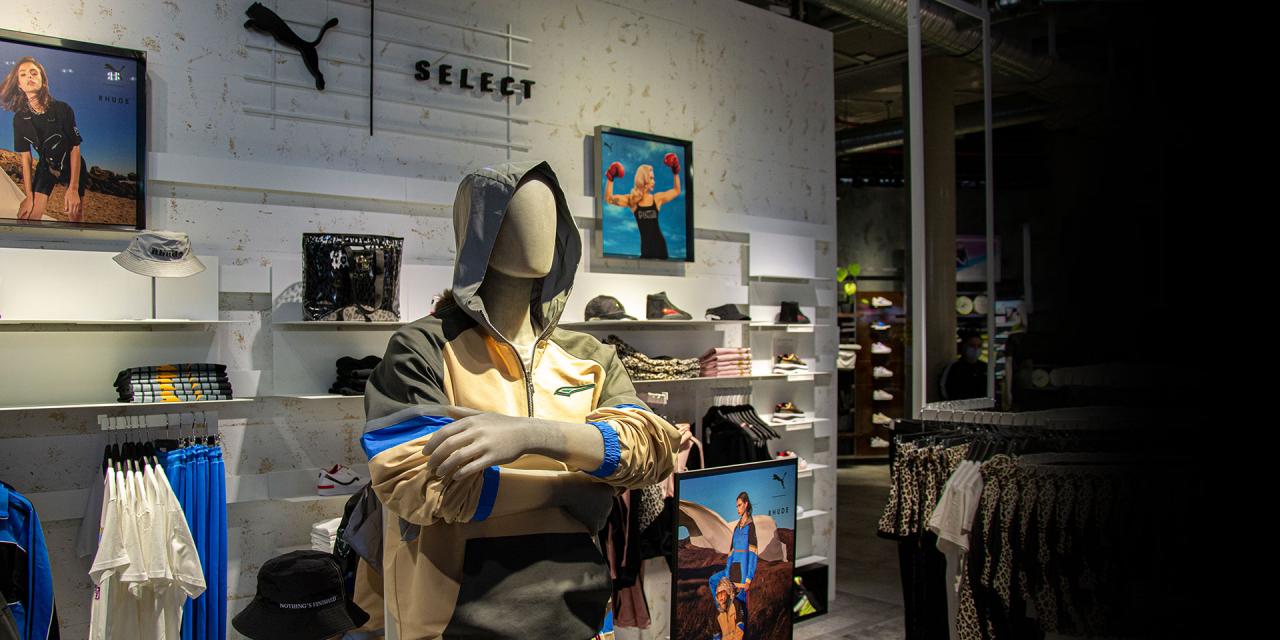
2020 FIRST QUARTER HEAVILY IMPACTED BY COVID-19
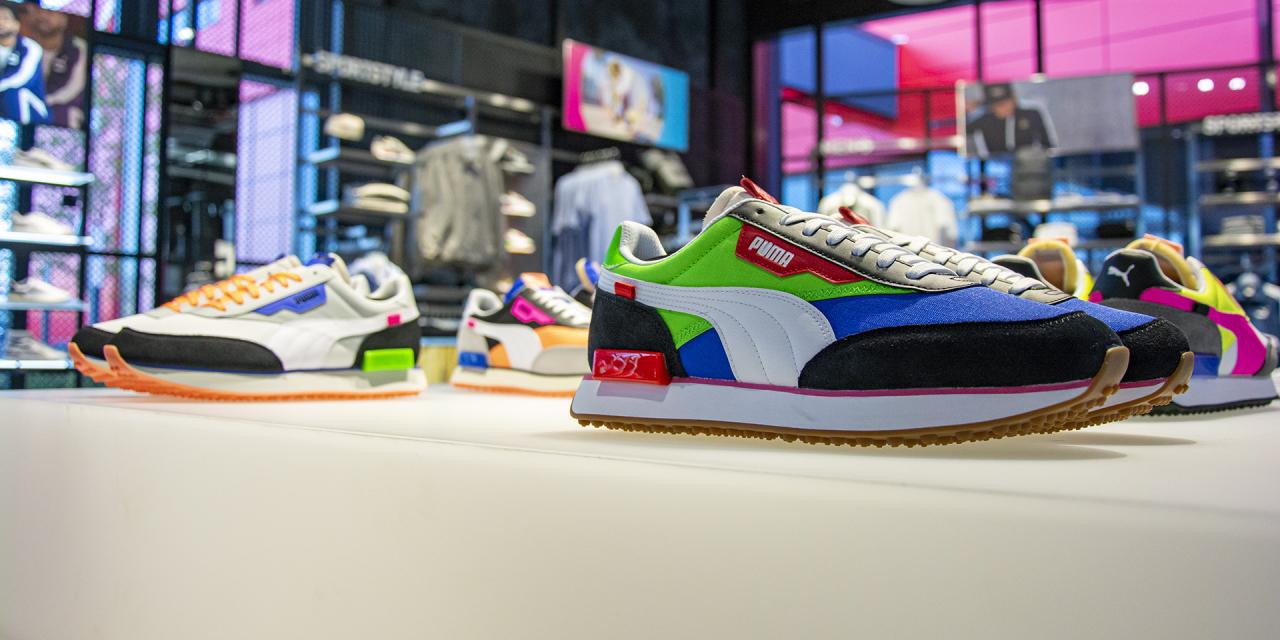
- Despite strong growth in the first ten weeks of the quarter, sales decrease by 1.3% currency adjusted to € 1,300 million (-1.5% reported)
- Gross profit margin declines by 140 basis points to 47.6%, caused by negative currency impact, lower sales in China as well as inventory devaluation and return provisions
- Operating expenses (OPEX) at € 553 million (last year: € 511 million); actions taken to reduce cost base with only a limited impact in the first quarter
- Operating result (EBIT) decreases by 50% to € 71.2 million (last year: € 142.5 mil-lion)
- Net earnings and earnings per share decline 62%
- PUMA proposes the suspension of the dividend payment to the Annual General Meeting on May 7 and will hold the AGM as a digital meeting
- PUMA secures additional € 900 million revolving credit facility in May to prepare for the financial impact of the COVID-19 pandemic
- PUMA will announce new sustainability targets 10FOR25 in the 2019 Annual Report
- PUMA and First Mile cocreate a sustainable sportswear collection made from recycled plastic, with positive social impact in local communities
Bjørn Gulden, Chief Executive Officer of PUMA SE:
“2020 started very well with a great order book, strong sell through and record retail numbers.
Then, at the end of January, the COVID-19 virus hit China. Since then we have worked to minimize the damage short-term without hindering the mid-term momentum of PUMA.
We are looking at three phases: Survive, Recover, Grow Again. The different markets are at different stages. APAC with China and Korea is recovering. Europe is hopefully also moving towards a recovery while the Americas, with almost all stores closed, are in the middle of the Survive phase. The health and safety of our people comes first and I am very impressed with how our people have handled this difficult period. The goal is to get through this without any PUMA employee losing their job. To survive this crisis in cooperation with all our partners such as retailers, suppliers, landlords, financial institutions, authorities, investors, and customers is crucial. We can only get through this together. So far, the cooperation with most of them has been great.
The first quarter was difficult, but we feel we did a decent job. The second quarter will financially be even worse with more than 50% of global sports and sport lifestyle space being closed. We are mitigating the impact on our revenues wherever we can by focusing on e Commerce and the markets that are opening up again. We are working with our factories and other partners in our supply chain to minimize the damage, assure timely deliveries, avoid excess stock as much as possible and to find fair solutions for all of us. We have asked all partners to get additional financing to ensure operations through this crisis and we have just secured a € 900 million revolving credit facility (RCF) to bridge the time with reduced inflows ourselves.
Given the uncertainty of the development of COVID-19, we are not in a position to estimate the impact for the full year. 2020 is and will be a difficult year, but we do everything we can to recover and to get back to strong growth in 2021.”
First Quarter 2020
PUMA started the year with a very positive order book for 2020, with strong and balanced growth in all regions. In China, after a good start to the year with double-digit growth in wholesale, e-commerce and owned and operated stores, the Chinese market shut down in the last week of January. Over the next six weeks, the whole business in China, except for e-commerce, basically disappeared. As China started to recover in mid-March, COVID-19 had started to spread globally and by the end of the month basically 80% of PUMA’s retail doors, both owned and operated as well as partner stores, were closed. As a result, PUMA's sales declined in the first quarter of 2020 by 1.3% currency adjusted to € 1,299.8 million (-1.5% reported). China, Japan and Korea were the most severely impacted countries and led to a decline of first quarter sales in the Asia/Pacific region of 12.0% currency adjusted. The EMEA and Americas regions, having been negatively impacted since March 2020, still showed a slightly positive sales development in the first quarter, increasing by 3.5% and 3.1% currency adjusted respectively.
In terms of product divisions, Footwear grew by 1.9% in constant currency while Apparel and Accessories were down 6.3% and 0.2%.
Both wholesale and retail channels were significantly impacted by the store closures instructed by local authorities around the globe. At the end of the first quarter, almost all of our owned and operated retail stores as well as the stores of our retail partners were closed. Our sales in e-commerce grew around 40% in the first quarter.
The gross profit margin in the first quarter decreased by 140 basis points from 49.0% to 47.6%. This development was mainly caused by negative currency impacts, lower sales in China, inventory devaluation and return provisions.
Operating expenses (OPEX) rose by 8.3% to € 553.3 million in the first quarter (last year:
€ 510.7 million). The increase was mainly due to sales and marketing costs to support the originally expected sales growth. In addition, higher costs in our e-commerce business and more retail expenses caused by a higher number of owned and operated stores also contributed to the increase. Actions taken to reduce the cost base only had a limited impact in the first quarter.
Due to the negative impact of COVID-19 on our business, the operating result (EBIT) decreased by 50.1% from € 142.5 million to € 71.2 million in the first quarter of 2020.
Net earnings went down by 61.6% from € 94.4 million last year to € 36.2 million in the first quarter of 2020. As a consequence, earnings per share decreased from € 0.63 to € 0.24.
Working Capital
An increased number of own retail stores and the loss of sales due to the negative impact of COVID-19 has led to an increase of inventories of 24.5% to € 1,129.9 million. Trade receivables declined by 12.6% to € 672.0 million. On the liabilities side, trade payables increased by 32.7% to € 742.3 million, mainly related to the higher product purchases, but also due to the deferral of payments. In total, working capital decreased by 6.9% to
€ 788.7 million (last year: 846.9 million). In May 2020, PUMA secured a new revolving credit facility of € 900 million through a banking consortium of twelve banks, including a direct participation of the Kreditanstalt für Wiederaufbau (KfW) of € 625 million.
Outlook 2020
We see an improvement in APAC, where especially China and South Korea are recovering; and we see the first stores opening again in some of the European countries. The distribution in Americas is still almost fully shut down. E-commerce is growing at a very high rate, but this growth cannot in any way compensate for the revenue loss in the other channels.
Given that a large proportion of the global sports and sports lifestyle distribution is currently closed, that consumers are still concerned about their health and safety and that we at PUMA are currently achieving only about 50% of normal revenue, we expect the financial performance in the second quarter to be worse than in the first quarter. The development over the coming weeks and months is so unpredictable that we cannot provide a reliable financial outlook for the full year 2020.
PUMA’s mantra is to manage the crisis short term without hindering the mid term momentum. 2020 is and will continue to be a difficult year, where the goal for PUMA is to survive, recover and then emerge stronger with growth again. Different markets will go through these phases at different times and execution therefore must be very locally driven. Management expects all markets to recover by the end of the year and 2021 to be a year of growth again. The industry is expected to be in a strong position after the crisis. People have already now started doing more sports wherever it is possible, even under difficult circumstances. There are many indications that health and sports will be even more important than before the crisis. The casualization trends and the influence of sports brands are also expected to strengthen further. PUMA is well positioned to continue its growth and will continue to invest in full new product ranges for 2021.
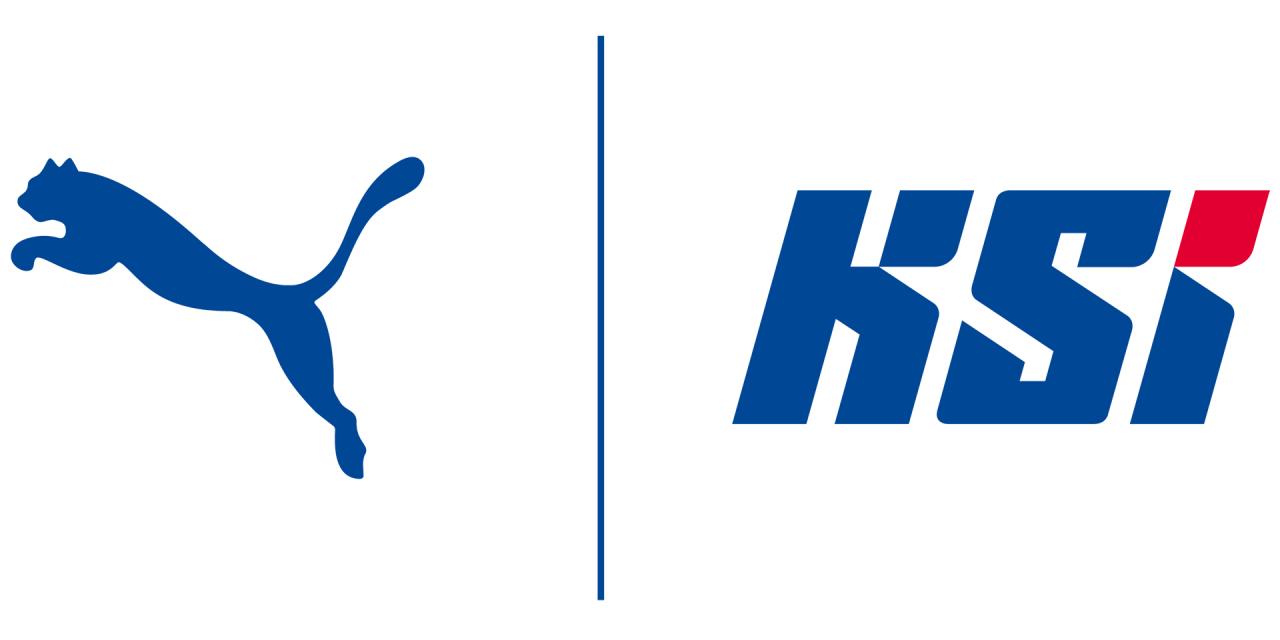
“I am extremely impressed with what Iceland has achieved,” said Björn Gulden, CEO of PUMA. “Despite a small population, they have great talent, the players a fantastic attitude and they always have a great team spirit. We really look forward to working with them.”
With a population of just 330,000, Iceland qualified for the UEFA EURO 2016 Finals and is the smallest national team to qualify for the men’s FIFA World Cup in 2018. The women’s team have also achieved success by qualifying for three UEFA Women’s European Championships in a row, 2009, 2013 and 2017. Following their rise in the world rankings, Iceland has been embraced around the world, capturing the imagination of football fans with inspirational performances on the pitch and strong support off the pitch.
Fans of the Icelandic team have produced an exhilarating stadium atmosphere with the now iconic ‘Thunderclap’. This spectacle has gained widespread popularity and attention after reverberating all over the world. Following matches, the players join the fans to continue this tradition in a post-match ritual, showcasing the remarkable bond the team have with their fans.
“We are excited and very much looking forward to our partnership with PUMA, one of the world’s leading sport brands. Their enthusiasm for Icelandic football and what we stand for has been impressive. I am confident that together with PUMA we can enjoy further success both on and off the field.” said Gudni Bergsson, FA of Iceland President.
Iceland will join a number of national teams on the PUMA roster such as Italy, Austria, Serbia, Switzerland and the Czech Republic.

Paul joined PUMA in 2007 as a Sales Manager for Lifestyle and quickly progressed to become General Manager of UK, Ireland and Benelux (UKIB) in 2014. Before joining PUMA, Paul worked at Adidas and Nike. With a track record in delivering growth and a passion for driving the business forward, Paul will lead the regional sales team to further accelerate PUMA’s momentum.
Marek Drvota, who has held the position of Regional Sales Director Europe since 2016, has decided to leave PUMA to pursue new opportunities outside of the company.
Paul will continue to be General Manager UKIB until his successor is nominated.
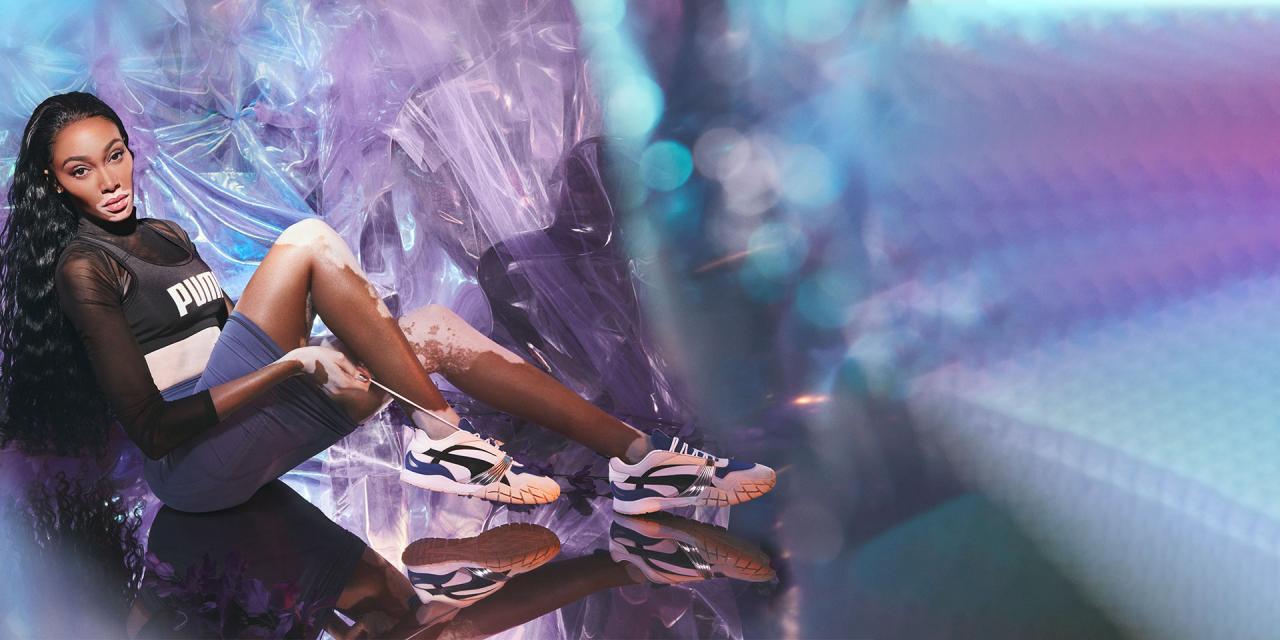
2020 Second Quarter Facts
- Sales decrease by 30.7% currency adjusted to € 831 million (-32.3% reported)
- Gross profit margin declines to 43.9%, caused by higher discounts, inventory devaluation and return provisions due to COVID-19 as well as negative currency impacts
- Operating expenses (OPEX) are reduced by 9.0% to € 484 million (last year: € 532 million) due to actions taken at the end of the first and during the second quarter
- Operating result (EBIT) decreases to € -114.8 million (last year: € 80.3 million)
- Net earnings decline to € -95.6 million and earnings per share to € -0.64 respectively
- PUMA announces international supermodel Winnie Harlow as new brand ambassador
- As an initiative of PUMA’s #REFORM platform (launched 2018 to fight for equality, respect and fairness), PUMA and Formula 1 partner Mercedes-AMG Petronas unveil black race gear as statement against racism and discrimination
PUMA signs long-term partnerships with the football federations of Iceland and Paraguay
2020 Half-Year Facts
- Sales decrease by 15.4% currency adjusted to € 2,131 million (-16.3% reported)
- Gross profit margin declines to 46.2% (last year 49.2%), caused by higher discounts, inventory devaluation and return provisions due to COVID-19 as well as negative currency impacts
- Operating expenses (OPEX) decrease by 0.5% to € 1,037 million (last year: € 1,042 million) due to cost savings in the second quarter
- Operating result (EBIT) decreases to € -43.6 million (last year: € 222.8 million)
- Net earnings decline to € -59.4 million and earnings per share to € -0.40 respectively
- PUMA secures additional € 900 million revolving credit facility in May to be prepared for a potentially longer-lasting impact of the COVID-19 pandemic
- PUMA announces new sustainability targets 10FOR25
Bjørn Gulden, Chief Executive Officer of PUMA SE:
“The second quarter of 2020 was the most difficult quarter I have ever experienced. A virus that shut down 85% of all global sports and fashion retail business was an experience that I had never expected. Priority number one was the health and safety of our people, number two to ensure financing and liquidity to survive the crisis and finally to run the business short-term as well as possible without destroying the mid-term momentum of our brand.
I am proud of how our people have worked through this difficult time. Flexibility, pragmatism, decisiveness and a positive spirit have been the key characteristics of our people. The quarter started with a 55% decline in sales in April, May improved, but was still heavily down with -38%. The real improvement came in June which was down “only“ 6%.
Flexibility with our wholesale partners, promotional activities in our own retail stores and a larger focus on e-commerce have been the short-term strategy.
Full investment in product development for 2021, continued investment in marketing, digital sell-in meetings with our retail partners and a high degree of local decision-making is the current strategy for the mid-term.
The uncertainty surrounding the virus and the fact that the number of infected people globally is still increasing makes it impossible to determine an accurate financial outlook for the full year. We continue to feel that there is a positive global sentiment towards PUMA among both our consumers and our retail partners worldwide and we will continue to do everything we can to please them.”
Second Quarter 2020
Sales in the second quarter of 2020 decreased by 30.7% currency adjusted to € 831.1 million (-32.3% reported), with sales declining in all regions and all product divisions. PUMA had a weak start into the quarter, with April sales down 55.2% year-on-year and May sales down 37.5%. Since then, business improved to being down “only” 6.0% in June. Despite a strong recovery in Greater China with a growth of 15.6% currency adjusted, sales in the Asia/Pacific region declined 14.2% currency adjusted in the second quarter, mainly caused by a weaker sales development in Japan and India. With most of the owned and operated PUMA stores and retail partner stores being closed in April and May, the business environment in EMEA and Americas deteriorated significantly with sales in the second quarter declining 30.0% and 43.1% currency adjusted respectively. All product divisions showed a double-digit decline in currency adjusted sales, with Footwear being down 34.1%, Apparel 32.2% and Accessories 18.2%.
The gross profit margin declined by 540 basis points to 43.9% in the second quarter (last year: 49.3%) caused by higher discounts, inventory devaluation and return provisions due to COVID-19 as well as negative currency impacts.
Operating expenses (OPEX) decreased by 9.0% to € 483.5 million due to various actions taken to adjust the cost base to the current market situation. However, general and administrative expenses increased due to higher provisions for expected credit losses of trade receivables.
The operating result (EBIT) decreased from € 80.3 million last year to € -114.8 million due to a strong decline in sales and gross profit margin, which could not be compensated by the reduction of OPEX.
Net earnings declined from € 49.7 million to € -95.6 million and earnings per share were down from € 0.33 in the second quarter last year to € -0.64 correspondingly.
First Half-Year 2020
PUMA started the year with a very positive order book for 2020, with strong and balanced growth in all regions. In China, after a good start to the year with double-digit growth in wholesale, e-commerce and owned and operated stores, the Chinese market shut down in the last week of January. Over the next six weeks, the whole business in China, except for e-commerce, basically disappeared. As China started to recover in mid-March, COVID-19 spread globally and by the end of the month basically 80% of PUMA’s, owned and operated retail stores and those of our retail partners, were closed. As a result, sales in April declined sharply by 55% compared to last year. With an increasing number of stores being opened over the course of May, first in EMEA and later in North America, sales improved in the month of May but remained still weak with a decrease of 38%. More store openings in June and a generally more positive sentiment led to a substantial improvement and a monthly decline in sales of only 6%. At the end of June, 85% of PUMA’s owned and operated stores were open.
Overall, sales in the first half-year of 2020 decreased by 15.4% currency adjusted to € 2,130.9 million (-16.3% reported). All regions showed a double-digit decline in sales with EMEA being down 12.1%, Americas 20.9% and Asia/Pacific 13.0%. Sales also declined in all product divisions with a currency adjusted decrease in Footwear of 15.2%, in Apparel of 18.6% and in Accessories of 9.0%.
The Wholesale business decreased by 17.5% currency adjusted to € 1,589.3 million. PUMA's Direct to Consumer business (DTC), which includes owned and operated stores as well as e-commerce, declined by 8.5% currency adjusted to € 541.6 million. This represented a share of 25.4% of total sales for the first half of 2020 (23.6% in the previous year). Supported by intensified performance marketing and successful promotions, our e-commerce business increased strongly by 70% currency adjusted.
The gross profit margin declined by 300 basis points from 49.2% to 46.2% in the first half of 2020, caused by higher discounts, inventory devaluation and return provisions due to COVID-19 as well as negative currency impacts.
As a consequence of the cost savings in the second quarter, operating expenses (OPEX) in the first half of 2020 decreased by 0.5% and amounted to € 1,036.8 million.
The operating result (EBIT) decreased from € 222.8 million last year to € -43.6 million in the first half of 2020 due to a strong decline in sales and gross profit margin while OPEX were slightly reduced.
Net earnings declined to € -59.4 million (last year: € 144.1 million). This translates into earnings per share of € -0.40 compared to € 0.96 in the first half of 2019.
Working Capital
We were able to decrease our working capital by 17.8% to € 652.1 million (last year: 792.9 million). The lower sales due to COVID-19 were the main reason for the increase of our inventories by 21.2% to € 1,288.9 million, but also caused the decline of trade receivables by 18.8% to € 572.5 million. Trade payables increased by 22.8% to € 908.5 million due to extended payment terms with our suppliers.
Cash Flow and Liquidity Situation
The free cash flow in the first half of 2020 decreased to € -206 million (1-6/2019: € -104 million). This development was mainly due to the negative earnings before taxes (EBT), while cash outflows for working capital and capital expenditures were reduced. PUMA’s cash and cash equivalents as of June 30, 2020 amounted to € 437 million (last year: € 366 million). In addition, at the end of the second quarter, PUMA had unutilized credit facilities amounting to a total of € 1,263 million (last year: € 357 million).
Outlook 2020
Even though the business in the second quarter developed slightly better than we had expected, the uncertainty remains very high: globally, COVID-19 infections are on the highest level since the outbreak of the pandemic. While the current trajectory could even suggest full recovery before year end, the risk of a second wave with major lockdowns remains very high. As the development over the coming weeks and months continues to be unpredictable, we cannot provide a reliable financial outlook for the full year 2020.
PUMA’s mantra is to manage the crisis short-term without hindering the mid-term momentum. 2020 is and will continue to be a difficult year, where the goal for PUMA is to survive, recover and then emerge stronger with growth again. Different markets will go through these phases at different times and execution therefore must be very locally driven. Management still continues to expect markets to recover by the end of the year 2020 and 2021 to be a year of growth again. The sporting goods industry is expected to be in a strong position after this crisis. People have already now started doing more sports wherever it is possible, even under difficult circumstances. There are many indications that health and sports will be even more important than before. The casualization trends and the influence of sports brands are also expected to strengthen further. PUMA is well positioned to continue its growth and will continue to invest in full new product ranges for 2021.
Brand and Strategy Update
The COVID-19 pandemic presented PUMA with several challenges that affected different parts of our business. When the pandemic started in China in January, some of our factories there had to shut down or could not operate on full capacity. As the virus spread to other parts of the world, large sporting events were either cancelled or postponed and most of our owned and operated stores had to be closed at some point in the second quarter. We had to quickly react to these changes. PUMA’s strategic focus in the first half of 2020 has clearly been on surviving and managing the crisis short-term without hindering our mid-term momentum. Therefore, we have determined three key objectives: mitigate sales impact wherever possible, secure supply chain as well ensure financing and manage costs.
We continued to invest in a full line of products for the upcoming seasons. Our regular sell-in meetings, during which we usually welcome sales managers from all over the world in Herzogenaurach, had to be held digitally for the first time. We also looked for ways to design and develop our products digitally without the need for people to travel to the factories and with a reduced number of samples to be physically shipped from our factories in Asia. Communication with our retail partners such as pre-line and sell-in meetings have also mainly taken place digitally. The feedback we have received so far from our retail partners for our Spring/ Summer 2021 collections was very positive.
We maintained a strong dialogue with all of our manufacturers, customers, landlords, banks and all other partners to ensure that we took measures together to sustain the entire value chain. To ensure that our manufacturing partners could continue to operate, we cancelled as few orders as possible, while securing more favorable payment terms. We also worked with both our retail partners and manufacturers to slow down shipments and extend payment terms to share the burden across the whole value chain.
To further strengthen our e-commerce business in this exceptional time, we quickly and strongly increased investments into performance marketing. We responded quickly to the increased demand on our e-commerce store, adapted our offering to the stay-at-home situation by giving more space to leisurewear as well as sports apparel and also improved the speed of our e-commerce platform puma.com. Our e-commerce business delivered very strong growth in the first two quarters.
We also made good progress with the upgrade of our logistics network, as we opened our new distribution center in Indianapolis, USA. The center will speed up delivery times, as 90% of US customers can now be reached within two days. We continued to work on our central European warehouse in Geiselwind, Germany, which is on track to be operational in the second quarter of 2021.
The strong decline in sales in the first half of 2020 led to a significantly higher demand for financing and a clear focus on costs. We reduced costs and cash outflow wherever possible and secured additional financing to ensure that we, together with our partners, could survive the crisis. In May 2020, PUMA secured a new revolving credit facility of € 900 million through a banking consortium of twelve banks, including a direct participation of the Kreditanstalt für Wiederaufbau (KfW) of € 625 million. We used short-time work programs, furlough and temporary lay-offs to reduce costs. The suspension of dividend payments and the suspension of 100% of the Management Board’s salary as well as the reduction of salaries of our senior management by 25%-35% in April and May were essential measures to reduce cash outflow.
With many of our ambassadors and consumers being confined at home, we looked for new ways of engaging with our audience. We created a series of live videos on social media platforms, which we called #StrongerTogether. These live videos included talks with our football ambassadors Sergio Agüero and Nikita Parris, yoga sessions with sportstyle ambassador Cara Delevingne, interviews with Formula 1 driver Max Verstappen or workouts with pole vaulter Mondo Duplantis and others. Apart from supporting PUMA’s social media channels and e-commerce, these videos also created significant coverage in traditional media outlets.
We welcomed several new partners during the first six months of 2020. At the start of the year, PUMA signed a multi-year partnership with Grammy Award winning artist J. Cole, who combines the worlds of music and sports and will create products and marketing campaigns for the brand. We also welcomed Canadian model Winnie Harlow as an ambassador, who already headed the marketing campaigns for two new footwear franchises, the Kyron and the Mile Rider. In football, Dutch football club PSV Eindhoven as well as the national federations of Iceland and Paraguay joined the PUMA family. In other teamsports, we expanded our presence by signing the German Handball Federation. In track and field, we signed a partnership with the South African Athletics Federation and long-jump World Champion Tajay Gayle. PUMA also signed Jamaican Omar McLeod, the reigning Olympic Champion in 110m hurdles and the 2017 World Champion.
Even though regular competitions were cut short in the first half of 2020, our track and field athletes still entered the history books. PUMA athlete Armand “Mondo” Duplantis broke the indoor pole vault world record in February by clearing 6m18cm. In June, Norwegian hurdler Karsten Warholm ran the fastest 300m hurdles in history in a solo race.
In the first half of the year, product highlights included our Rudolf Dassler Legacy Collection, which features some of the most iconic shoes from PUMA’s history, such as the Fast Rider, the Ralph Sampson and the Roma. Alongside PUMA ambassador and LGBTQ+ activist Cara Delevingne, we launched the “From PUMA with Love” pack to celebrate Pride Month. The Rider, which was re-introduced in late 2019, became one of our most important footwear styles in the first half of 2020. This year, it was launched in several new styles and colors.
We also presented new collections with a focus on sustainability. Our sportswear collection with First Mile is made with recycled yarn that is manufactured from plastic bottles collected in the First Mile network. Our collaboration with London-based design school Central Saint Martins implemented cutting edge dyeing technologies such as “Dope Dye” and digital printing, to reduce the use of chemicals and water. Still at an experimental stage, our innovation department presented the “Design to Fade” biodesign project, which explored sustainable alternatives for dyeing and making textiles. On a corporate level, we have set ten new sustainability targets for 2025, which will further improve the social and environmental aspects of our supply chain. Examples of these targets include PUMA’s commitment to further lower its CO2 emissions and using 75% recycled polyester across all apparel and accessories products by 2025. We are also in the process of phasing out plastic bags from all of our retail stores globally.
The pandemic has once more confirmed that local relevance is key and the market situation can vary significantly between regions. To reflect this, we empowered decision-making by local management even more. Additionally, different countries have different sports that people follow and participate in. One of the best examples of local relevance is our partnership with Virat Kohli, the captain of the Indian cricket team. Cricket is by far the most relevant sport in India and by partnering with Virat, PUMA gains credibility as a sports brand in the Indian market.
We have taken decisive action to face the challenges presented by the COVID-19 pandemic. With our strong business model and supporting fundamental industry trends, such as casualization and an increased focus on health, we are well positioned to emerge stronger from the crisis and continue our growth.

Since 2014, Ben has had the role of Head of Sales for UKIB and played a significant role in the development of the UKIB business. “Ben has an impressive growth track record and enjoys great respect from our major accounts in the UK, which makes him the right person to lead the UKIB business and continue PUMA’s growth momentum,” said Arne Freundt, Regional General Manager EMEA.
Ben joined PUMA in 2008 as Key Account Executive for JD Sports before he took on various Teamhead roles covering Performance & Sportstyle.
